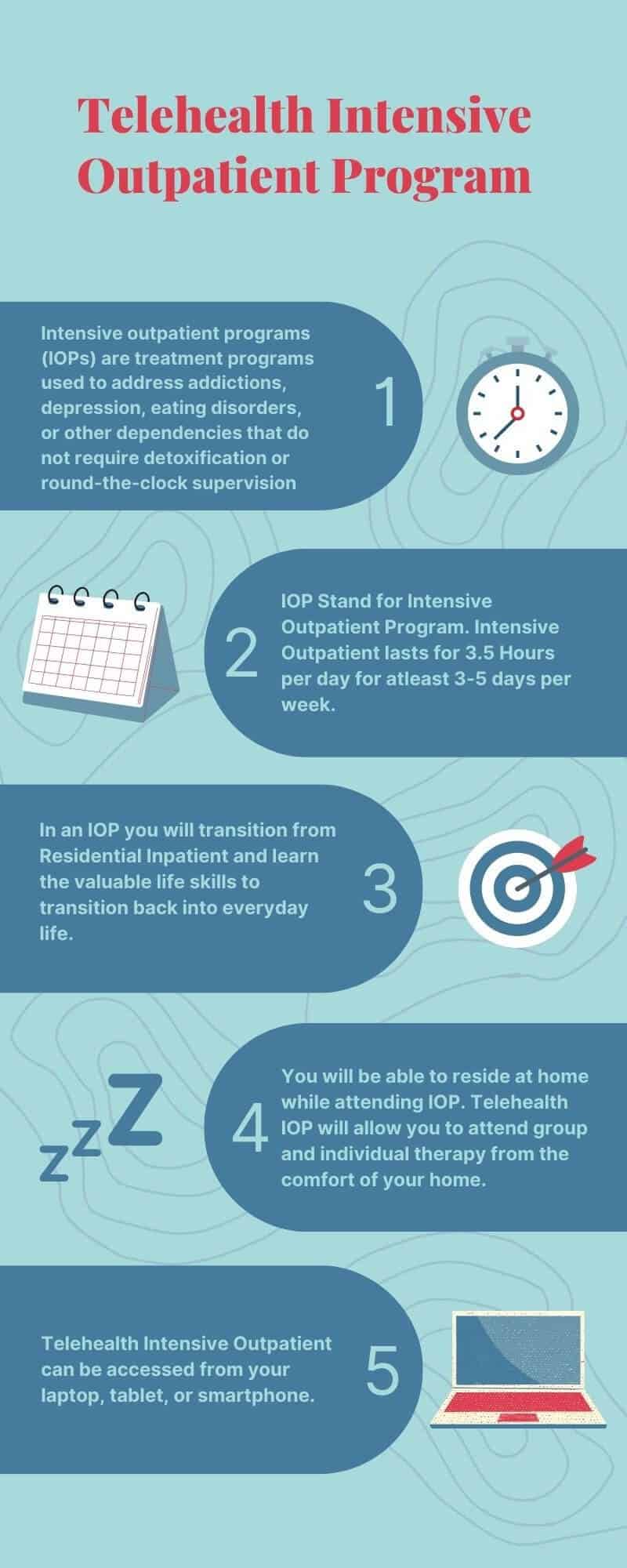Browsing the Complexities of Double Medical Diagnosis Treatment Within an Extensive Outpatient Program Setting
In the realm of psychological wellness and dependency therapy, the intersection of twin diagnosis provides a nuanced obstacle that requires an extensive and customized method. By checking out the intricacies of twin medical diagnosis therapy within this extensive outpatient context, a more clear path emerges towards alternative and lasting recovery for those grappling with these linked difficulties.
Double Diagnosis Review

Understanding dual diagnosis is necessary as it calls for an extensive and integrated strategy to therapy. By recognizing the interaction between substance use and mental health and wellness, doctor can tailor interventions to satisfy the one-of-a-kind needs of each person. This all natural technique not just addresses signs and symptoms but also targets underlying factors that add to the dual medical diagnosis.
In addition, unattended dual diagnosis can result in a cycle of regression and getting worse mental wellness signs. By acknowledging the complexity of twin diagnosis and giving specialized treatment, health care professionals can support individuals in achieving long-term recovery and enhanced psychological health.
Tailored Treatment Plans
Acknowledging the intricate interaction between material usage disorders and mental health and wellness conditions, the advancement of customized therapy strategies is extremely important in dealing with the complexities of dual diagnosis in psychological health and wellness treatment. Tailored therapy plans are individualized approaches that take into consideration the unique demands, obstacles, and objectives of individuals dealing with twin medical diagnosis. These plans are developed collaboratively by a multidisciplinary team of experts, including psychiatrists, psychologists, social workers, and dependency specialists, to guarantee thorough and incorporated treatment.
Tailored therapy strategies normally involve a combination of therapies, medicines, and behavior interventions that target both the substance usage disorder and the mental wellness problem concurrently. These strategies might include cognitive-behavioral treatment, dialectical behavior modification, medication-assisted treatment, private therapy, group therapy, and family therapy, among other evidence-based treatments. By customizing treatment methods to private scenarios, tailored plans can resolve the origin of twin medical diagnosis, promote long-term recuperation, and boost overall top quality of life for people having a hard time with co-occurring problems.
Integrated Treatment Approach
An integrated care strategy in twin medical diagnosis treatment combines medical, psychological, and social interventions to deal with the complicated requirements of individuals with co-occurring compound use conditions and mental health and wellness conditions. This method identifies that dealing with one facet of a twin diagnosis without addressing the various other can bring about inefficient results. By integrating clinical interventions such as medicine management for psychological health and wellness conditions with psychological treatments like cognitive-behavioral therapy for substance usage conditions, individuals obtain extensive care that targets all facets of their twin diagnosis.
Furthermore, the social element of integrated treatment involves dealing with ecological variables that may add to the growth or perpetuation of material use and mental health problems. This can consist of family members dynamics, real estate instability, or absence of social assistance. By incorporating social interventions like family therapy, professional redirected here assistance, and neighborhood resources, the therapy comes to be extra all natural and customized to the individual's particular demands. On the whole, an integrated care approach in double diagnosis therapy within an extensive outpatient program setting intends to supply detailed, reliable, and customized treatment to people dealing with co-occurring problems.
Obstacles in IOP Setting
In the context of twin medical diagnosis treatment within an extensive outpatient program, browsing the complexities of co-occurring compound use conditions and mental health conditions provides substantial obstacles. One of the key hurdles in the IOP setup is the control of treatment in between mental health and wellness experts and material misuse experts to make sure a detailed therapy technique. This needs reliable communication, cooperation, and a deep understanding of exactly how these conditions interact and influence each various other.

Furthermore, resolving stigma and resistance to treatment within the IOP setup can restrain progress. Some individuals may be reluctant to disclose their dual diagnosis or might feel embarrassed, impeding their interaction in the therapeutic process. Getting rid of these barriers requires a helpful and non-judgmental environment that promotes depend on and openness.

Collaborative Expert Initiatives
Efficient twin medical diagnosis therapy in an extensive outpatient program necessitates seamless cooperation amongst psychological health specialists and compound misuse experts to make sure a comprehensive and incorporated approach to care. By working together, these specialists look what i found can create personalized treatment strategies that cater to the one-of-a-kind needs of each person, thinking about both their mental wellness and material abuse difficulties.
Collective initiatives also encompass routine communication and details sharing amongst staff member to guarantee a natural therapy strategy. This may involve case seminars, joint sessions with the individual, or shared paperwork to track progress and adjust therapy techniques as required. Additionally, partnership might consist of entailing other healthcare professionals such as medical care physicians or household therapists to supply all natural support to the person. Eventually, a joined front of professionals interacting improves the effectiveness of dual medical diagnosis treatment within an extensive outpatient this article program.
Conclusion
To conclude, reliable twin diagnosis therapy within an extensive outpatient program setting calls for tailored therapy plans and an incorporated treatment approach. Challenges might occur in this setup, yet collaborative efforts among experts can aid browse these complexities. By dealing with the distinct demands of people with co-occurring mental health and wellness and material utilize conditions, IOP programs can supply detailed and holistic like support recovery and overall health.